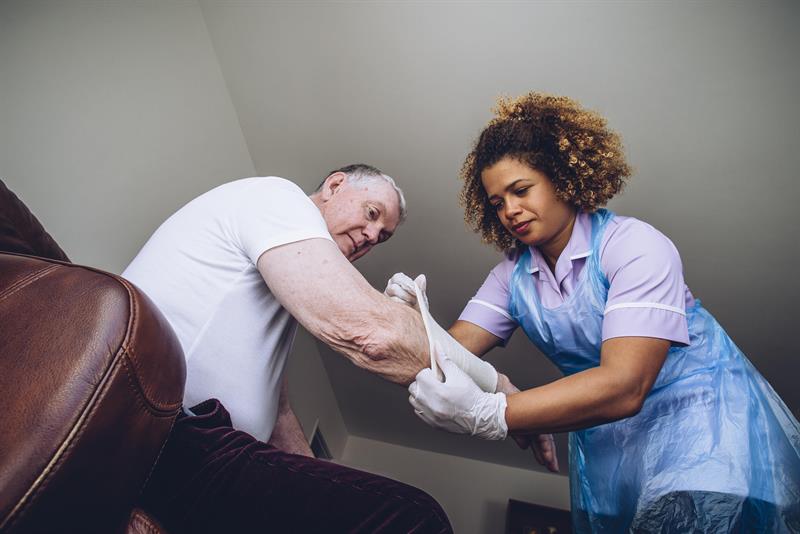The National Early Warning Score (NEWS2) is used by clinicians to score the physiological measurements which are routinely recorded at the patient’s bedside. The idea behind it is to quickly identify patients that are acutely ill in hospitals in England, including individuals suffering from sepsis.
The NEWS2 scoring system measures six physiological parameters. These are oxygen saturation, respiration rate, systolic blood pressure, temperature, level of consciousness (or any confusion that wasn’t previously detected), and pulse rate.
Clinicians will give each parameter a score of 0, 1, 2 or 3. The higher the score, the further away the parameter is from the normal range.
Risk levels
Once a score has been given, a risk level will be assigned. These must be reviewed locally and appropriate action taken.
Low risk (aggregate score 1 to 4) – A ward nurse will need to carry out a prompt assessment to decide on change to frequency of monitoring or escalation of clinical care.
Low to medium risk (score of 3 in any single parameter) – In this case, a ward-based doctor will need to urgently review the patient to decide how they should be monitored and what clinical care is needed.
Medium risk (aggregate score 5 to 6) – Here, a review must be carried out by a ward-based doctor or acute team nurse. They will then determine whether the patient should be escalated to critical care.
High risk (aggregate score of 7 or over) – This is an emergency and the patient must be assessed by a critical care team. After that, the patient will typically be transferred to a high-dependency care unit.
If a patient scores 0, meaning there’s no change to any of the parameters, they still need to be monitored and reviewed frequently (at least every 12 hours).
Get familiar with NEWS2
Looking for the chance to learn valuable new skills that will really benefit your patients?
As a nurse, paramedic or other allied health professional, you’ll need to make assessments on patients and act fast.
If this sounds like you then why not consider our popular course Clinical decision making & the deteriorating adult in primary care. Held entirely online, the course is aimed specifically at those who have already undergone training in patient assessment. It’s worth 14 hours of valuable CPD too, held over two days.
Flexible, interactive and designed to give you the tools you need in assessing patients effectively, this course is not to be missed.
Sign up today before spaces run out!











